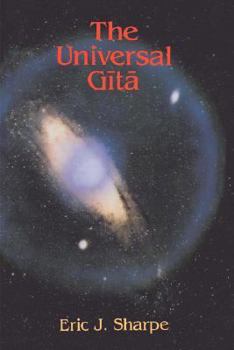The Universal Gita: Western Images of the Bhagavad Gita a Bicentenary Survey
Select Format
Select Condition 
Book Overview
The Bhagavad Gita influenced Western writers like Southey, Emerson and Thoreau and as a result of these interpretations, became popularized in India. This book analyzes this Westernized Hinduism and... This description may be from another edition of this product.
Format:Paperback
Language:English
ISBN:0812691296
ISBN13:9780812691290
Release Date:February 2000
Publisher:Open Court
Length:208 Pages
Weight:0.55 lbs.
Dimensions:0.6" x 5.0" x 8.1"
Customer Reviews
1 rating
Beyond the "Mystical East"
Published by Thriftbooks.com User , 18 years ago
This is an excellent, excellent book, although not one calculated to appeal to enthusiasts of the neo-Hindu revival (in whichever form) - because of course it is a history of the modern reception of one of the books most important to that movement, and so in part a history of that movement. Still, for anyone uncommitted to the Gita as either a prefiguration of computer science/quantum mechanics/other imported notions of supreme scientific legitimacy ("ancient Vedic scientists had long known the secrets of flying saucers, etc.," to be a little harsh) or as a scriptural revelation of absolute truth whose historicity is beyond investigation, this book could hardly be improved upon for what it tries to do. How did Westerners respond to the Gita, and why? (Why, for instance, not the Vedas - at least not until Max Müller - a question Sharpe takes up with characteristic brilliance.) What did Thoreau and Emerson find it - and even, perhaps, pass back to Indian history through "Self-Reliance," "Civil Disobedience," and nonviolence? How was the Gita valorized by Indian nationalists in search of a mythos? What language did Sri Aurobindo and Gandhi read it in? (Edwin Arnold's Victorian English translation, as it happens.) Is the Gita a text of pacifism or militant resistance? Could it help a "West" denuded of spirit rejuvenate itself through poetry? And what of today's Gita - a product of colonialism and anti-colonialism, philological scholarship and the American counterculture, Theosophy and the Indian independence movement? On each of these questions history has grains of salt to offer - and if you don't like their taste, don't read this book - but it is to be hoped that the truly faithful are of open and generous enough spirit to reconcile the mess of history with the clarity of revelation. In any case, scholars and amateurs alike should find this book an excellent and in many cases astounding jaunt through the impossible, unlikely, and fascinating mess that is the history of ideas.





